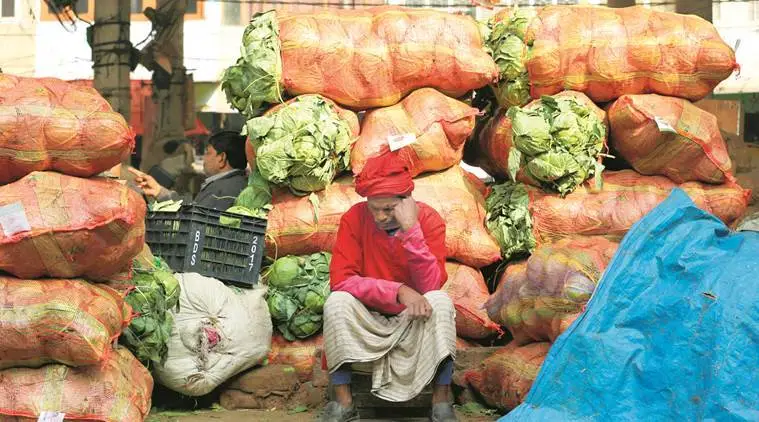In 2020, the Government of India (GoI), in an attempt to solve the chronic problems within the agriculture sector, passed three contentious farm laws that were a cause for major political uproar. These laws were a definitive departure from the protectionist policies governing the sector and were viewed as the largest reforms since the series of technological and policy changes of the 1960s, also known as the ‘Green Revolution.’ However, the three laws were repealed after a year of back and forth with stakeholders.
One wonders, what if the policy hadn’t been repealed? What were the incentives and disincentives for the stakeholders? Did the policy make intuitive sense? If so, why did people collectively oppose this law? One of the laws among the three and the biggest bone of contention was the Farmers’ Produce Trade and Commerce (Promotion and Facilitation) Act, 2020, colloquially known as the Mandi Bypass Act.
Ludwig von Mises in his book ‘Human Action: A Treatise on Economics’ says “Action is will put into operation and transformed into an agency, is aiming at ends and goals, is the ego’s meaningful response to stimuli and to the conditions of its environment, is a person’s conscious adjustment to the state of the universe that determines his life.” To understand the sentiment that prevailed against the laws, we need to first understand the change in the state of the universe that took place. Let’s analyse it the Austrian way!
Agriculture in India is a matter of the State List, i.e., it is subject to legislation by individual states. As mentioned before, Indian agriculture is subject to very stringent regulation, even post the 1991 economic liberalisation. One such regulation is the Agriculture Produce Marketing Committee (APMC), a statutory market committee constituted by State Governments for trade in certain notified agricultural, horticultural, or livestock products. The system was envisaged as a platform to enable farmers to sell their produce at fair prices while extending market-led services such as transportation, warehousing, and processing. However, there’s a caveat, which undoes the market process. The caveat is that farmers in the jurisdiction of the APMC can only carry out wholesale marketing activities (the first sale) in the notified agricultural commodities through licensed commission agents (arhtiyas) of the APMCs who are subjected to taxes and licence fees.
What this feature does is it creates a monopsony – many sellers selling to a single buyer, disabling price discovery. The people who benefit the most out of this system are the arhtiyas as they are able to purchase produce at or just above government-set minimum support prices and sell the goods at their true market value, pocketing the difference after paying taxes to the state government, making complete use of the asymmetry in information. Furthermore, small and medium farmers who opt out of the system face much higher marketing costs and are unable to generate profits. To add salt to the wounds, there has been very little development of market-led services for agriculture and corruption has bred like mosquitoes near stagnant water.
The Mandi Bypass Act (as the colloquial name suggests) was to break the monopsony at the national-level, overruling state laws by permitting farmers to sell to buyers outside the APMC to facilitate price discovery and promote the development of alternative markets that force APMCs to offer better services as they try to survive by staying competitive. It provides the farmer with options to sell in alternative markets which offer them the highest value for their produce. However, this was protested with no compromise and it was demanded that all the three laws be repealed.
Interestingly, most of the protests were concentrated in Punjab and Haryana, ‘The Grain Bowl of India’, where the APMCs are well-established, since the taxes collected are a major source of revenue for the governments and the arhtiya community is a major vote bank and source of funding for the politicians of these states. It is also a fact that these protectionist markets have incentivised farmers to only grow wheat and paddy which has severely affected the water tables in these states. These are also a major part of India’s exports, essentially implying that India is exporting groundwater.
Even though the Mandi Bypass Act brought with it the promise of solving some of the problems in the current system, it came with some problems of its own. Friedrich Hayek in ‘The Use of Knowledge in Society’ asserts that “every individual has some advantage over all others because he possesses unique information of which beneficial use might be made, but of which use can be made only if the decisions are left to him or are made with his active cooperation.” Policymakers formulated these new laws without any consultation with the stakeholders, lacking complete information of the situation on the ground. The GoI acted unilaterally and brought the new laws, first as ordinances, then as laws, with little discussion, passing them by virtue of their majority. Secondly, the APMCs already have a well-established market. If the small and marginal farmers aren’t able to arrange market-led services at affordable costs independently, it would force them to return to the APMC Mandis to sell their produce.
Albeit, the current situation of agriculture screams for reforms and I, like most other economists, bat for it. Primarily, it must be ensured that the monopsonistic features of APMCs are done away with, be it at the state-level or at the national-level, while ensuring that there is a safety net that farmers can fall upon during slow seasons, beyond the loan-waiving political prasad that hurts all taxpayers.
A safety net would entail providing affordable crop insurance while ensuring efficient procurement and storage of food crops. Affordable crop insurance allows farmers to transfer the risk of crop failure by paying a small premium which doesn’t inhibit their ability to produce in the next cycle whereas efficient procurement and storage of crops helps stabilise the supply, and thus, the prices of crops. This should be complemented with policies that take away subsidies from fertilisers and focus them on agricultural infrastructure such as irrigation, transportation, warehousing, cold storage, and agricultural processing to incentivise investment in these capital goods as they are the missing link in Indian agriculture.
Post Disclaimer
The opinions expressed in this essay are those of the authors. They do not purport to reflect the opinions or views of CCS.





